Messi's World Cup Legacy
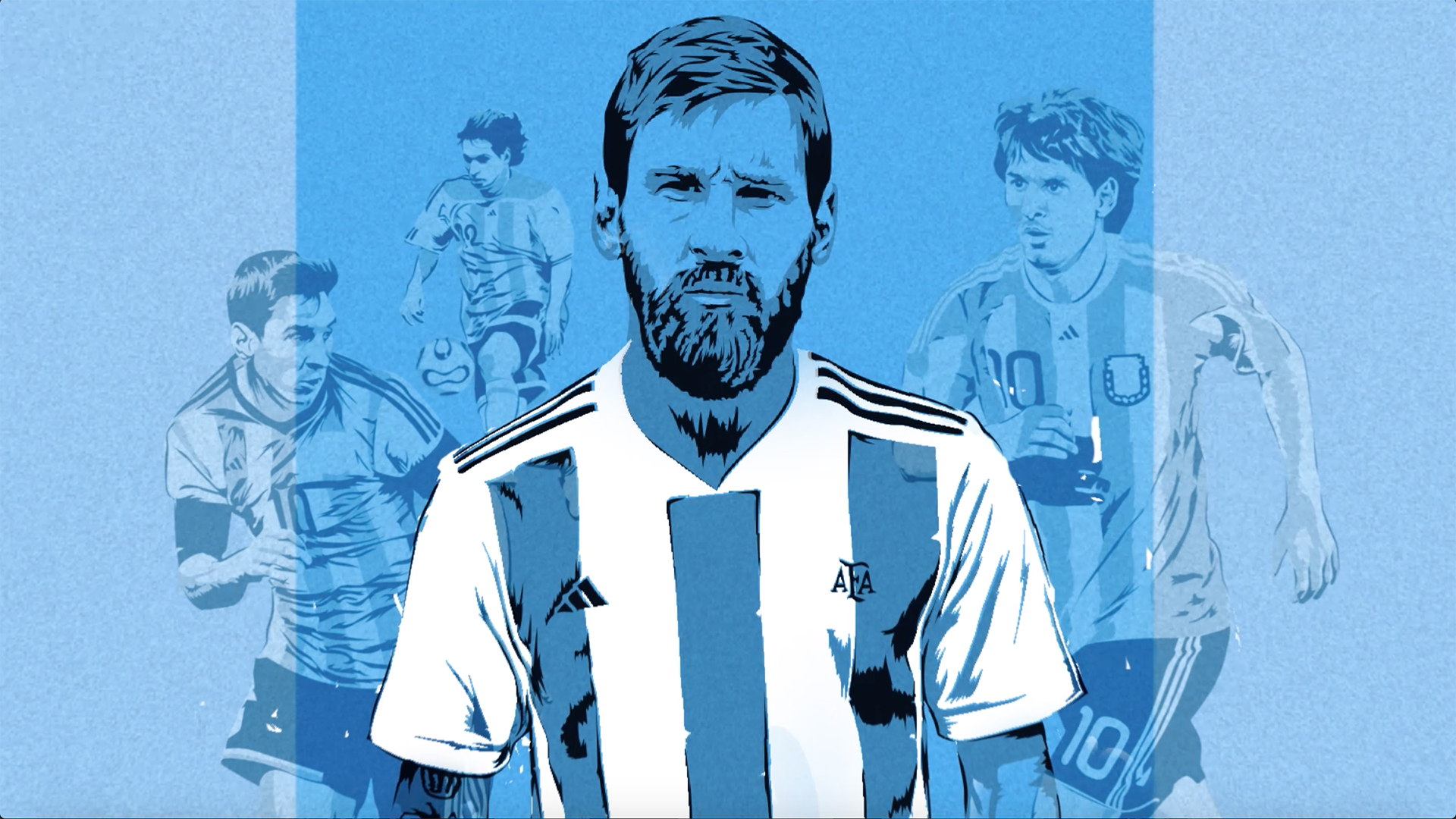
In 2006 he was "a kid", in 2010 he still "didn’t have enough experience", and in 2014, at the tournament his coaches had earmarked as his best shot at glory, his dreams were dashed by a painful defeat at the hands of his eternal rivals.
So what will be Lionel Messi’s World Cup legacy?
Given the leading roles played by Mario Kempes in '78 and, particularly, Diego Maradona in '86, Messi has been subjected to increased scrutiny. For some, he simply must win the World Cup.
This is his story so far, told by the men who were there.
2006
Gerardo Salorio played a vital, and hard-nosed, role in Messi’s development, first as a member of Argentina’s coaching staff at the Under-20 World Cup in 2005, and then with the seniors in Germany a year later.
"He made the difference, he was blessed when it came to football," Salorio tells Goal.
That much was evident when the 18-year-old scored on his World Cup debut, a 16-minute cameo against Serbia that also made him the youngest player to appear at the tournament in Argentina’s long history.
But the tournament was more a harsh learning curve than a fairy tale. "Could he come up with all the answers like he does now? No, no, because that team had everything. At that age what he had to do was contribute a little, something he didn’t understand because he always wanted to play, and to me that seemed bad.
"He could give the team 15 or 20 minutes, in which he could unbalance the opposition because he really made an incredible difference. The thing was, at that age, you have to sustain that for 90 minutes. I don’t think he was able to do that. In the U20s yes, he was far too good for that level, but for the seniors he was just missing a little something, he had to play the amount of time the team needed. I don’t think he understood that."
After the Serbia game Messi was handed his first World Cup start against the Netherlands. Salorio, who has won five U20 World Cups with Argentina, remembers his words of advice afterwards.
"I was telling him: ‘You created four chances but didn’t score. A goal is only ever worth one, not five, it doesn’t matter if you dribble past four or five or if you knock the ball in on the goal line.’ We had to teach him every day, we were teaching a young lad what it meant to play senior football."
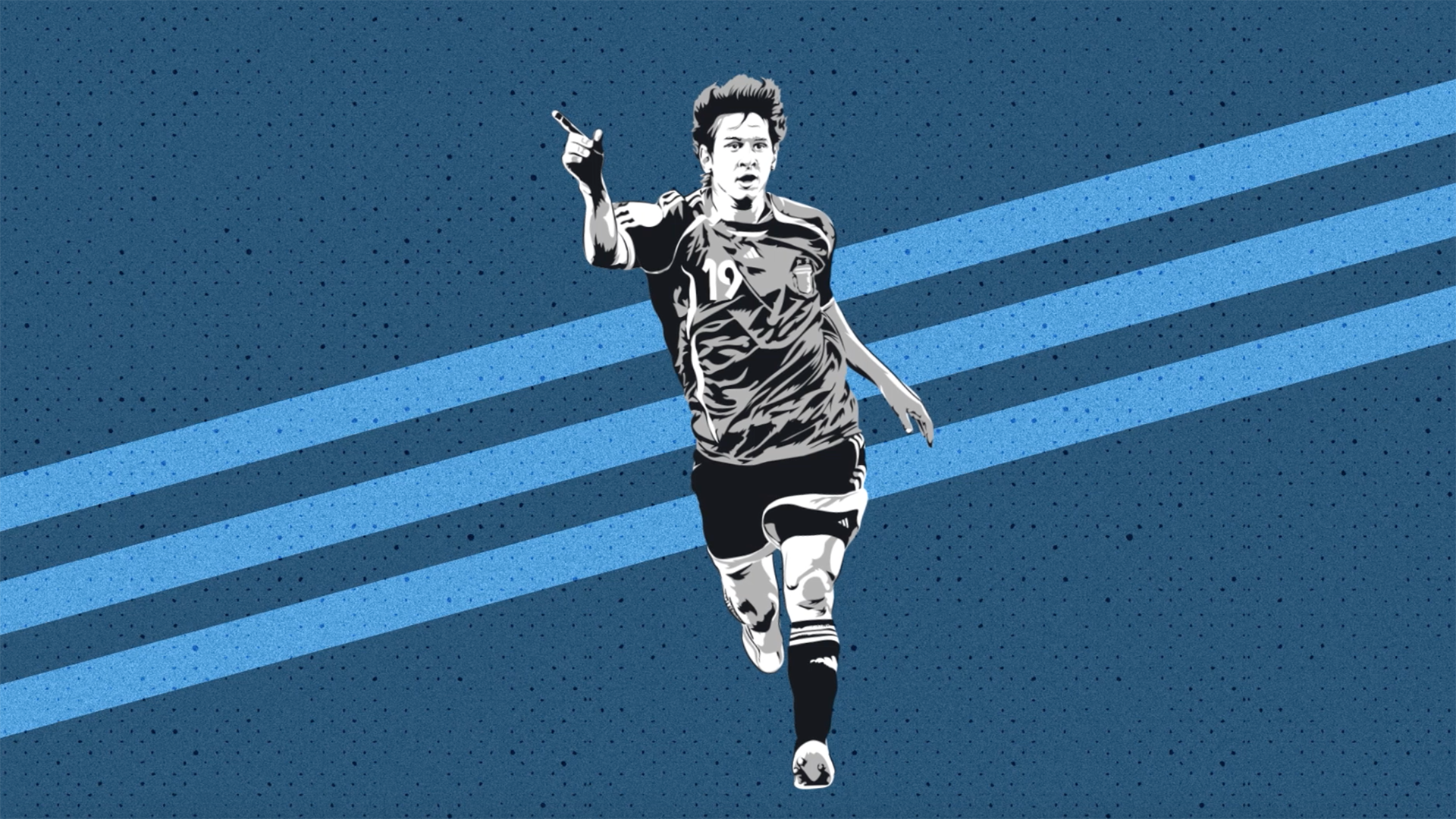
He was, though, still a boy. "He very rarely spoke in the dressing room. There were much bigger players than him, like Ayala, Riquelme, Crespo, Cambiasso, who could provide many more things than he could.
In that dressing room he said very little. He had a lot of older guys around him to shelter him and protect him."
He knew how to make a mark on the pitch, however, and when he was brought on with six minutes left of the last 16 clash with Mexico he saw a goal ruled out that Salorio insists would have been given today, with the aid of VAR.
But despite his impressive showings he was left on the bench by coach Jose Pekerman as Argentina were eliminated by Germany in the quarter-finals.
"With 25 minutes to go Pekerman was saying that the only way that Germany could equalise was with a high ball," Salorio says, explaining the decision to leave Messi out. "So he took off Riquelme and put on Cambiasso to stop their No.4 getting forward, and then a few things happened to unbalance things, like Abondanzieri’s injury. And with 12 minutes to go he made the decision, the kind of decisions that are made in 10 seconds, to put on Cruz to have a striker who could defend in both boxes.
"With 10 minutes left they equalised and we went to penalties. With the current rules we would have had the fourth substitution in extra time, and we would have had Messi on the pitch and the result would have been different.
"To me it felt like we were forming the player, after that he turned into the crack that he is now."
Salorio believes they changed Messi that summer: "What you have to understand is that we shaped and educated him to arrive at where he is now. That’s the most useful thing, because of the maldad there is in Argentina when you play football. Messi came to me with the ‘light’ feeling that they had taught him, we taught him what it means to play in Argentina."
He explains the meaning of maldad, a badness: "Maldad is very cruel, I do not have it in football, my rival is a colleague, not an enemy, but that’s how it is in Argentina.
"Here football is life, and you play like we live. If you are generous in life you are generous on the pitch, if you are miserly, even more so on the pitch. For us winning is an important part of life.
"Messi had to understand that, we taught him to have the hunger. We knew that you either die on the pitch or you die on the pitch. You only understand it if you feel it.
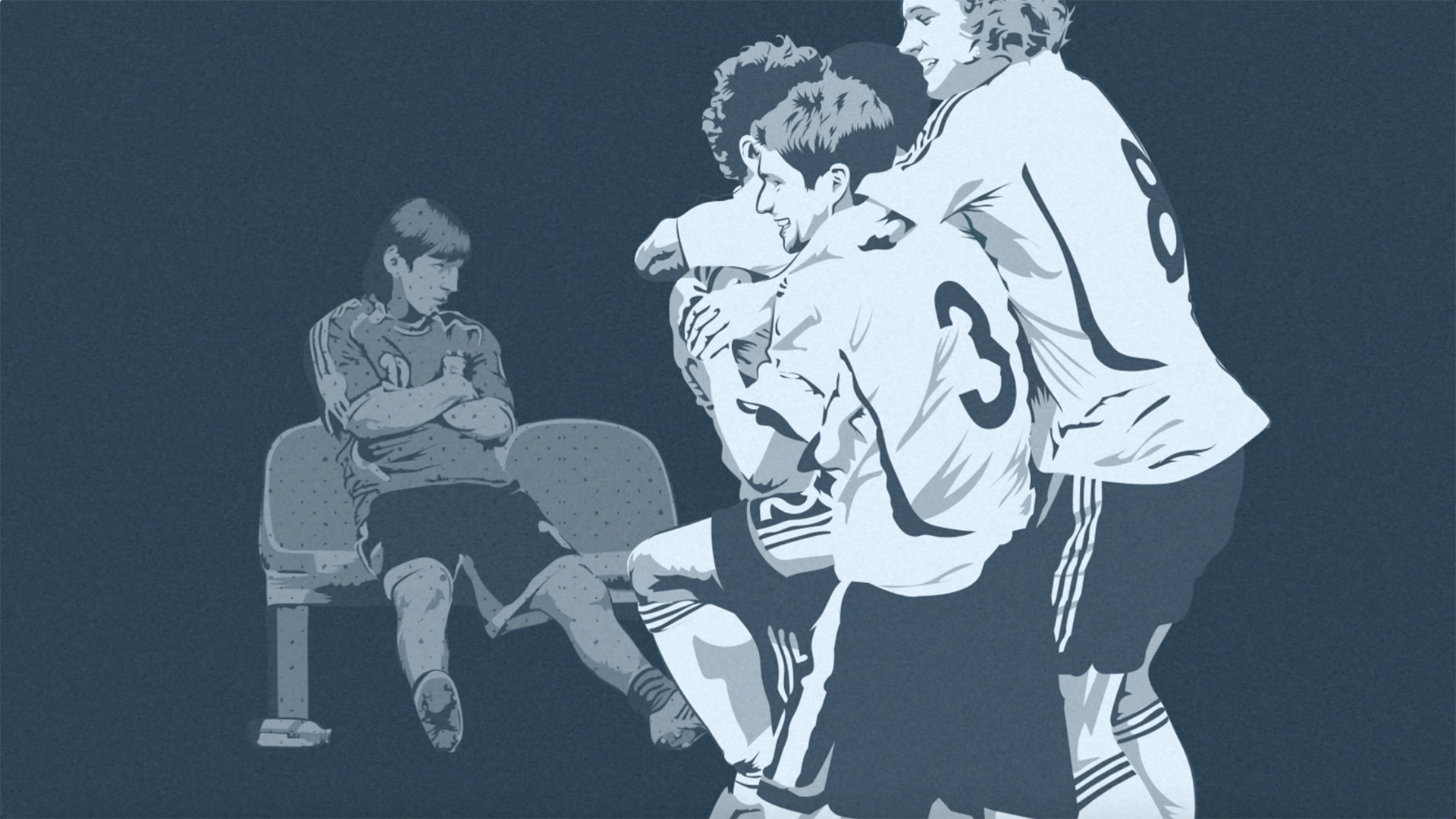
"The Barcelona sporting director asked us what we had done with him, there had been a change. We simply made him understand that in Argentina you live football in a different way, here if you don’t win they kill you, over in Spain it’s more light.
"It’s like a car, nobody is Formula 1 champion on the first day, you make gradual progress. That’s what Messi had to understand in 2006.
"We believed that the following World Cup would be the take-off of the Messi that you see now. The Messi we had was just starting out, it was just the beginning."
2010
By South Africa 2010 Messi had won the first of his five Ballons d’Or, and his Barcelona performances ensured expectations were high. That pressure was only exacerbated by the presence of Diego Maradona, the man with whom he was already being compared, in the Argentina dug-out.
Fernando Signorini was Maradona’s fitness coach between 1983 and 1994 and part of his coaching staff in South Africa. It was there that he worked closely with Messi.
"His relationship with Diego was wonderful," Signorini tells Goal with a smile. "It was like the professor and his student.
"There was a mutual admiration, it was as if they were looking in a mirror, Diego seeing somebody he was sure would be his successor, and Leo somebody who had done what he had done and was so admired for it."
Not that they shared many similarities inside the dressing room.
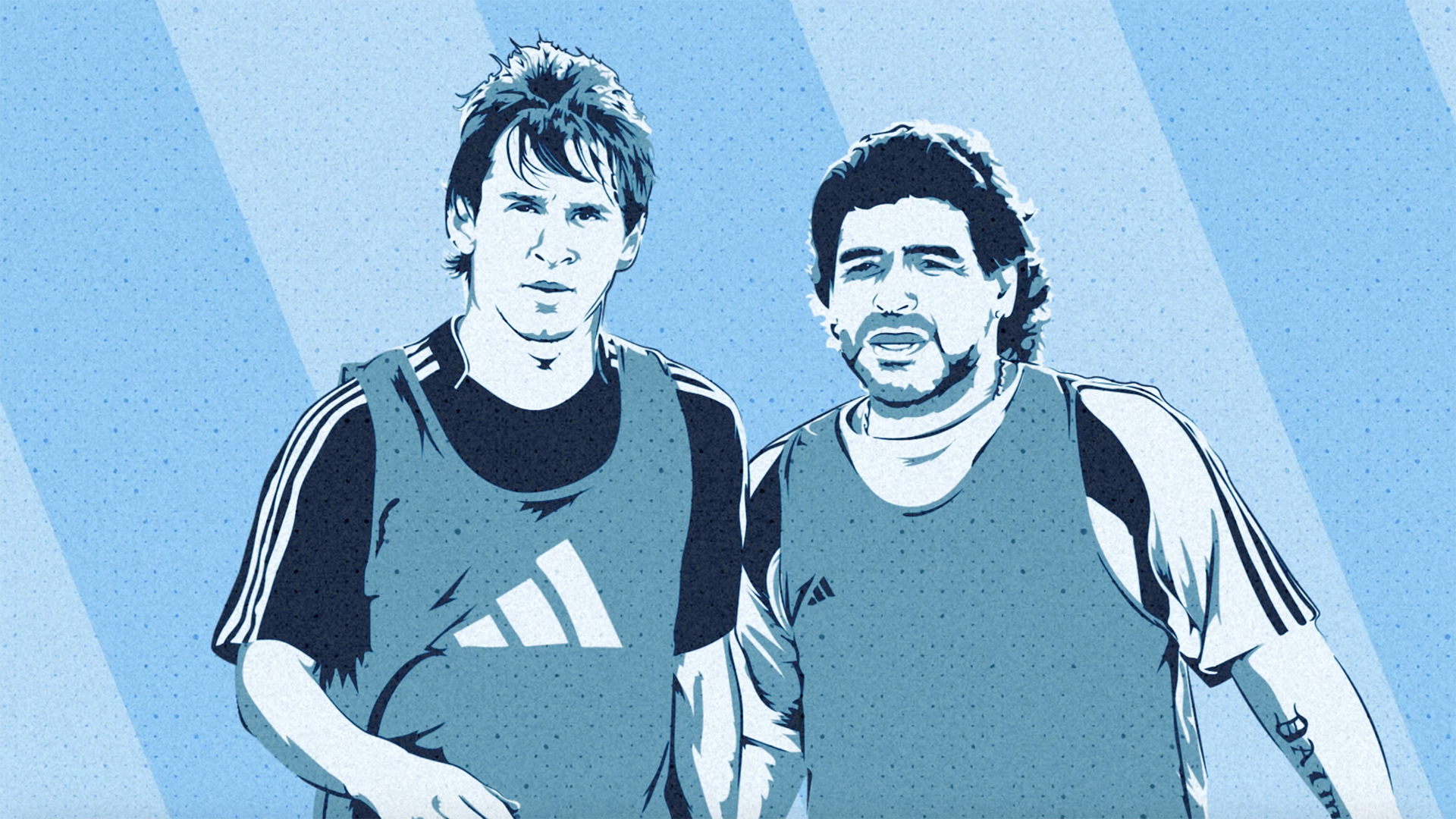
"Once he’s in that zone he has a phenomenal power of concentration, and except for a spectacular goal he’s not very expressive even when he’s happy,” Signorini says of Messi.
"It’s pretty strange, but OK, it’s his character. He does not have that effusive intensity that Diego had, but it’s very interesting to see how he swims so comfortably in such turbulent waters."
For all he had achieved in the four years between his two World Cups, he had not become any more vocal in the dressing room.
"I think that of all the best players in the history of football, and he is one of those, he is the strangest, the most curious, because it looks like he lives absolutely apart from everything.
"It’s true that people do not usually display their rawest emotions, but from the outside, at least, he looks like a tranquil lake, though on the inside there’s a boiling volcano."
That volcano, however, never quite erupted. Crammed into a central role surrounded by Carlos Tevez, Gonzalo Higuain, Angel Di Maria and Juan Sebastian Veron, Messi laid on plenty of goals but could not find the back of the net himself.
"In South Africa it’s true that he didn’t score any goals but I believe there was an evolution in terms of the chances that he had, I think between six and eight, but then for different reasons they did not go in," Signorini contests.
Argentina made light work of a straightforward group containing Nigeria, South Korea and Greece, setting up knock-out meetings with familiar opponents: Mexico, who they beat comfortably, and Germany. Again.
"The team had a handicap because a large part of the squad were very young, and at a World Cup against strong teams with so much experience, such as Germany, it was a very big handicap. That’s just how it was."
Maradona’s youthful, attack-minded side were ruthlessly taken apart by Joachim Low’s Germany, themselves on a World Cup journey. Messi’s story felt unfulfilled.
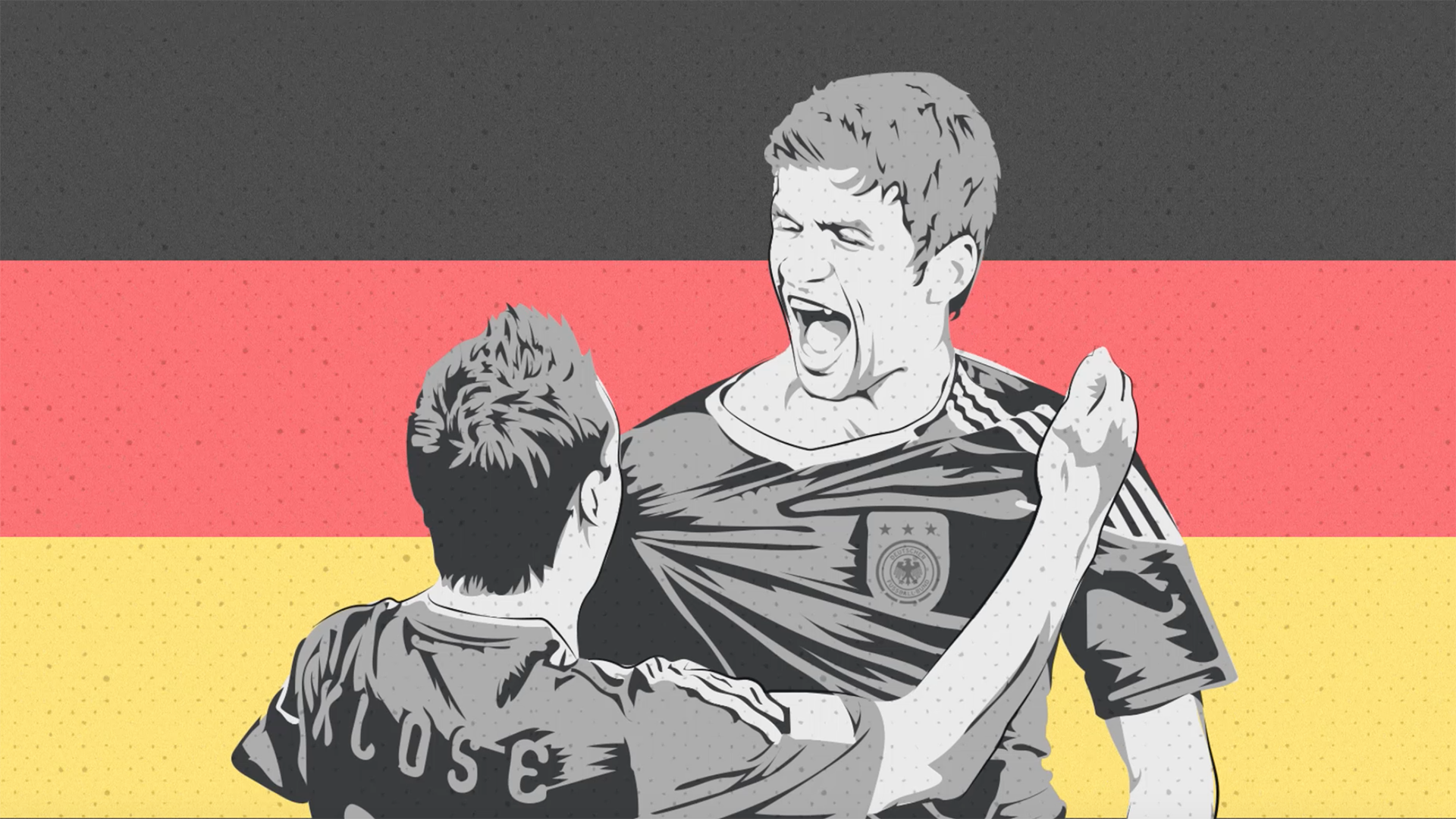
"I think the World Cup in South Africa for Leo was another step on the ladder that has ended with him establishing himself as one of the best of all time, but he was very young still, he was just 23. He didn’t have enough experience then, just like Maradona at the same age at the 1982 World Cup.
"We always expected some of his magic, but we knew that the bread was still not baked."
2014
Messi was already regarded as the best player of all time by many, such was his progress at club level between South Africa and Brazil, and winning the World Cup would have converted plenty of remaining doubters.
"We knew that for Leo and the rest of the team their World Cup would be the next one in 2014, because they would be four years older and have more invaluable experience," Signorini says.
If it was to be Messi’s World Cup, however, he would be the silent leader.
"He doesn’t like to go out in public, he’s pretty shy," Julian Camino, part of Alejandro Sabella’s coaching staff, tells Goal. "He poses for a lot of photos and signs a lot of autographs and I think that embarrasses him. But on the pitch of course he’s a great player, he’s always involved, he’s the best in the world and he can win a game with a free kick or a loose ball that breaks to him outside the area, as we saw ourselves in 2014."
That was exactly what we saw. A neat solo effort against Bosnia got the ball rolling before he broke Iranian hearts with a last-minute wonder-goal to seal a 1-0 win and struck two more typically stunning efforts in a hard-fought victory over Nigeria.
Argentina did not look entirely convincing, but Messi did. The captain was leading by example, dragging everybody else up to his level.
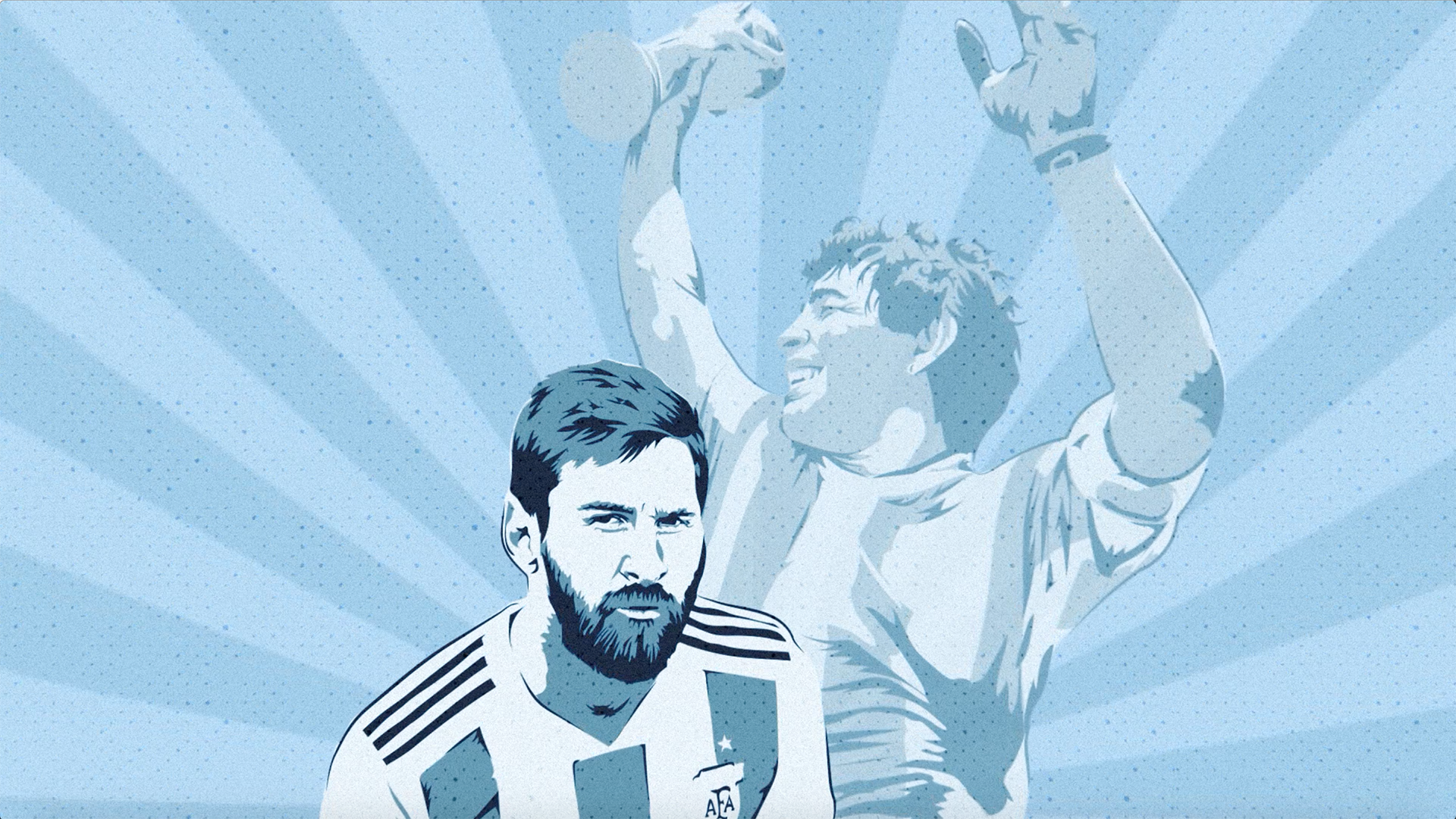
"Who wouldn’t listen to the best player in the world?" Camino says. "And, of course, Argentina have to match that because they have the best player in the world. They have to give him everything, the best pitches, the best preparation, the best clothes, so that the best player in the world and other players are calm and the only thing they have to think about is playing."
In 2006 his inexperience restricted his game time and in 2010 he played every minute but struggled in an unbalanced team, but in 2014 he was at the top of his game and the team played to his strengths.
"We played him off the right because when he goes inside he has the whole goal open to him, he could fire off a shot or put in a cross for the striker," Camino says.
"Alejandro played another one or two forwards so the opposition couldn’t mark Messi so much and he could play more freely from the right."
He looked more restricted in the knock-outs, however, and so did Argentina. Extra time was needed to see off Switzerland, an early Higuain goal did for Belgium, and after 120 goalless minutes against the Netherlands it was Sergio Romero, the goalkeeper, who was the hero with two penalty shoot-out saves.
It was not pretty, but Argentina were in the final and Messi on the verge of immortality.
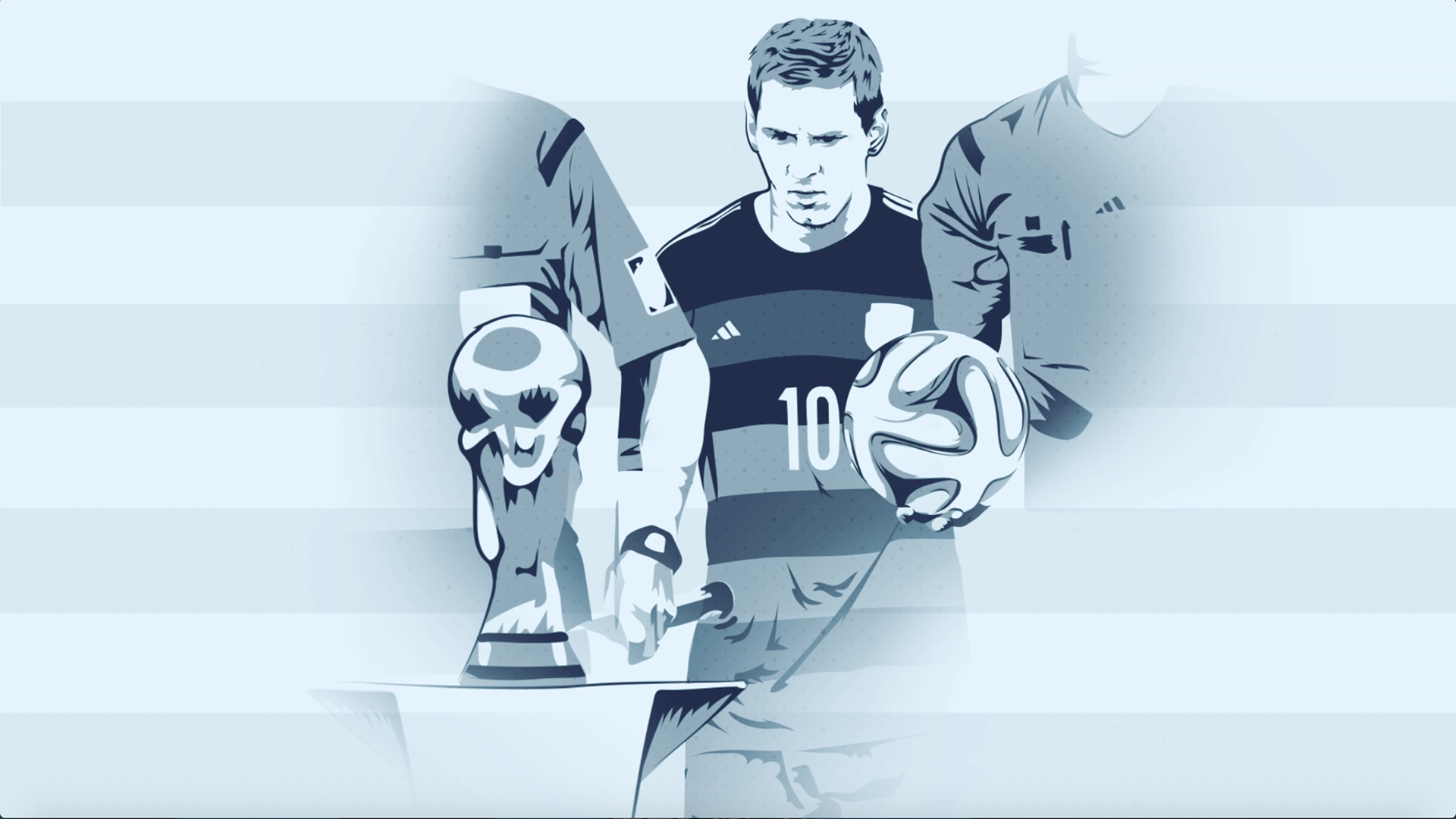
"The strongest memory I have is when we beat Holland, you could see Messi there shouting, crying," Camino says. "That’s when you realise what the Argentina shirt means to these players. That stayed in my mind because there were so many of us there in the dressing room, hugging each other, shouting that they were going to play a World Cup final with Argentina, something they had been yearning for for so long."
Yet as Argentina battled with the Netherlands, Germany battered Brazil. It would be Low’s side, again, in the final.
Higuain was guilty of a now infamous miss early on but Messi, too, pulled a shot wide in the second half. After 90 tense, goalless minutes, extra time beckoned.
The Argentine players gathered in a huddle. Fans watching at home captured an image showing Javier Mascherano, not Messi, rallying the troops. The captain was off at the side, in that zone of concentration that Signorini so eloquently explained.
"No, no, that photo has nothing to do with how he is in front of the group," Camino argues. "We were playing a final, we had the break and he was concentrating, but it doesn’t mean he’s not a leader because he wasn’t in that chat.
"They’re just two different leaders, Mascherano and Messi. Mascherano possibly talks more, but Messi with his presence is a very good leader."
Yet the most famous picture of Messi from that day, perhaps of all time, was still to be taken. In those painful moments between Mario Gotze’s winning goal and the Germany players claiming their trophy, Messi allowed himself an agonising glimpse at what could have been. There he stood, no more than a matter of yards away, staring blankly at the World Cup, his expression haunted.
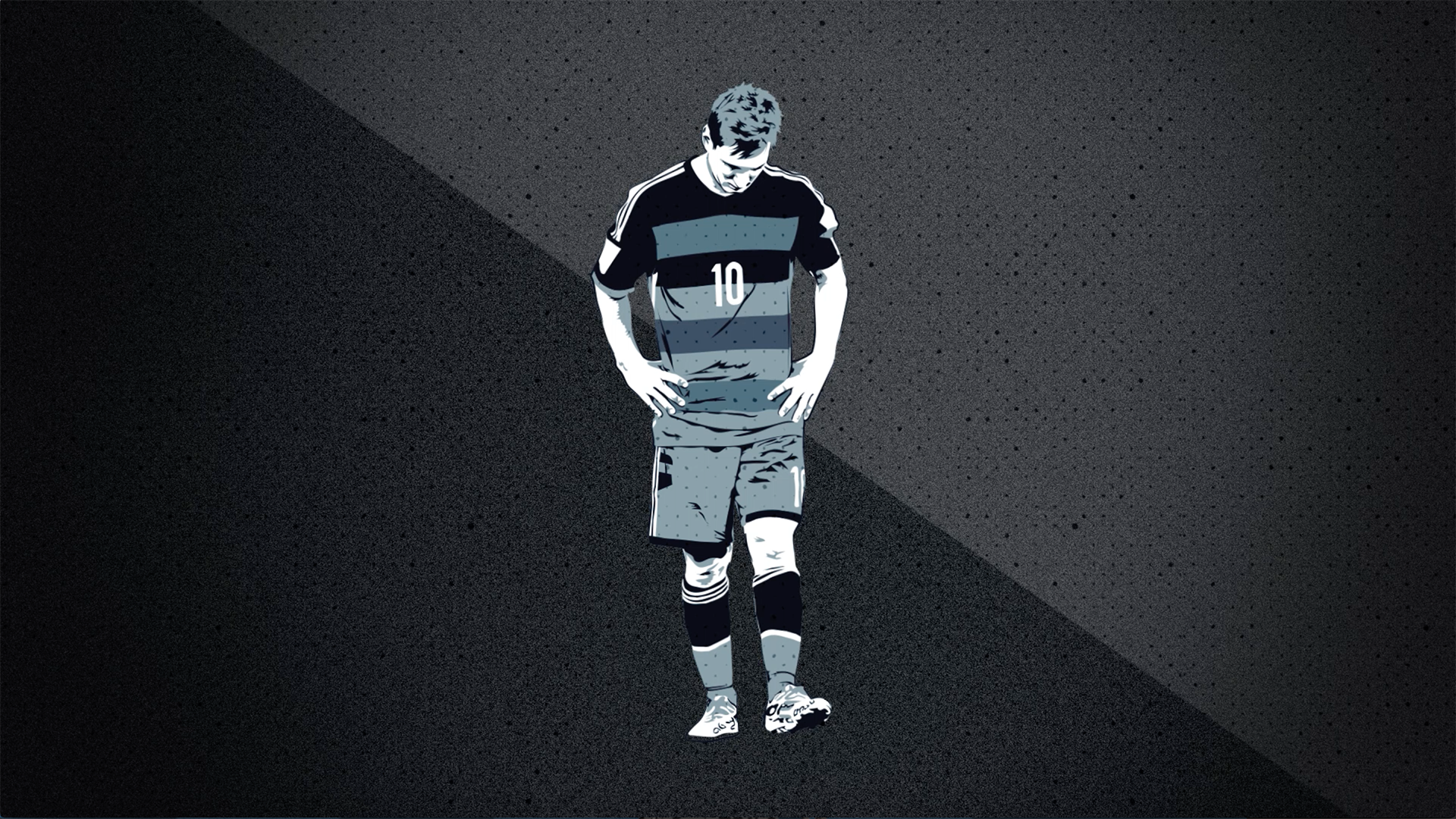
"After the defeat he was very sad," Camino recalls. "He had shown that he could have won the World Cup. It was one of the best games that Argentina played, we had three clear chances to score and Germany only had one. It only got away from us by very little.
"It wasn’t just Messi. All of us, the players and staff, couldn’t help but steal a glimpse of the trophy… it was right there, and we were so close to winning it."

